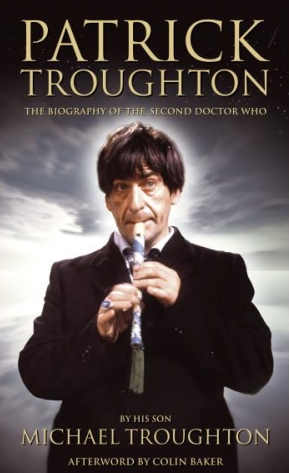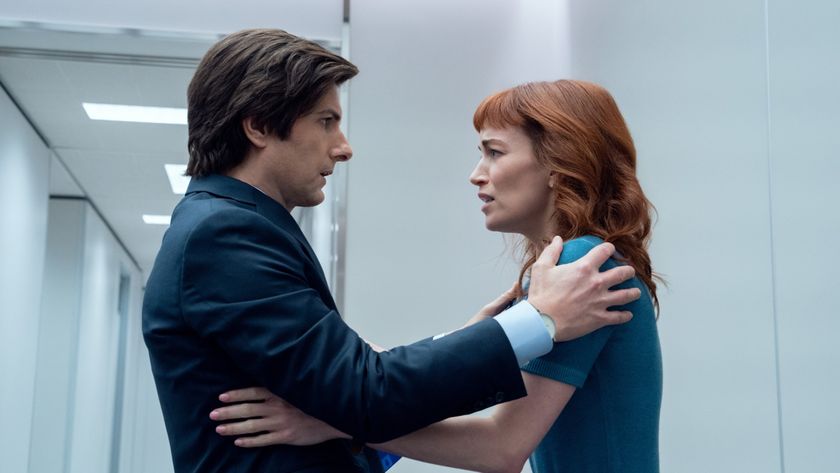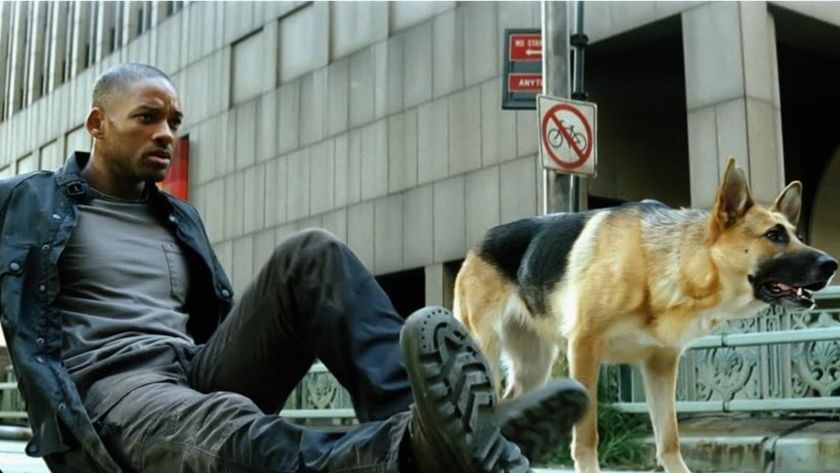Why you can trust 12DOVE
Giving Pat answers
Who fans may adore the Second Doctor, but most know very little about Patrick Troughton. An intensely private man, when he did make public appearances, he generally made them in costume and in character. Now his son, Michael (an actor himself – perhaps best known for his role as Alan B’Stard’s sidekick in The New Statesman ) reveals that this tendency towards protective disguise continued even with his own family.
Troughton had a hidden double-life, you see, having left his original family behind in the mid-‘50s to start a second with another woman - a scandalous situation at the time which, remarkably, he kept from his own mother for over two decades, right up to her death in 1979. At one point in this surprisingly intimate portrait, Michael Troughton recounts the “annual performance” of the trip to Grandma’s. It’s just one of several touching moments. Elsewhere, the author recalls his 11-year-old self blurting out, “When are you coming home so we can all be a family again?” the day dad rang to discuss his first day’s work on Who , and reveals that his sister (angered by Troughton’s treatment of his first wife) never spoke to her father again after 1976.
Don’t misunderstand, though: this is no hatchet job, but a balanced, fair portrayal. You come away with a very clear idea of what drove the man, both personally and professionally. His private life was driven by a restless desire for constant change (asked by his son why he left his family behind, he explained “Things have to change all the time for me I’m afraid, that’s the way I am”), while the engine of the actor was an intense anxiety which caused visible shaking (and undoubtedly contributed to the heart condition that ultimately claimed his life). You also learn about some of his more amusing personal quirks, like his love of dirty limericks, his golf course tantrums, and his penchant for peeing in public…
As you’d expect, given the subtitle, the book covers Troughton’s three years as a Time Lord in some depth. There are some interesting behind-the-scenes anecdotes, several of which will be new to even hardcore fans, and Troughton’s anxieties about the role are frankly discussed: his fear that he would not be accepted by the public, that he would become typecast, and ultimately that he could be remembered as the man who destroyed the series. But the book also meticulously runs through his other TV and film roles – of which there were a staggering number - and recounts his youth.
In those early stages, as the author discusses his father’s development as an actor and his wartime service in the Navy, the book feels rather like a small-circulation book on local history, thanks to a somewhat pedantic attention to detail (do we really need to know which bus service he used to commute to acting school?) and a tendency to transcribe old documents in full. Troughton Jr has a wealth of material to draw on – postcards and letters his father sent while filming on location, scrapbooks of press cuttings, naval logs, early fan letters, and his dad’s war-time diaries (one particularly sweet entry reads, “I kissed a girl for the first time today… I think I am in love”) – and you can hardly blame him for succumbing to the temptation to keep drawing on this treasure-trove. Very occasionally it’s questionable whether the material quoted is of great interest to anyone beyond his immediate family, though.
One other minor flaw is an absence of proper attribution. It can, at times, be difficult to sort out quotes taken from formal interviews and those recalled from personal conversations at a distance of decades (in suspiciously miraculous detail), or grasp when and where they took place.
But these are petty plaints when faced with a book of such remarkable honesty and openness (and it’s not just open about its subject: the author candidly exposes his own self too). Once you’ve finished reading, you’ll find that Troughton has transformed from a shadowy enigma into the fully-formed figure of a man: one, like most of us, possessed both of praiseworthy virtues and flaws which can be understood.
Ian Berriman
Read our interview with Who companion Anneke Wills about the recently discovered episode of "The Underwater Menace".
Ian Berriman has been working for SFX – the world's leading sci-fi, fantasy and horror magazine – since March 2002. He's also a regular writer for Electronic Sound. Other publications he's contributed to include Total Film, When Saturday Comes, Retro Pop, Horrorville, and What DVD. A life-long Doctor Who fan, he's also a supporter of Hull City, and live-tweets along to BBC Four's Top Of The Pops repeats from his @TOTPFacts account.
Most Popular







